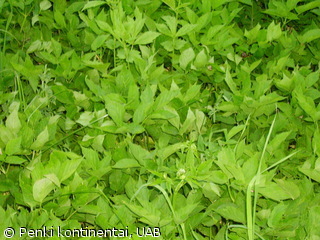Independent journalists and international human rights organizations are concerned about the future of free-press development in Kazakhstan
Published:
20 January 2004 y., Tuesday
Independent journalists and international human rights organizations are concerned about the future of free-press development in Kazakhstan, citing pending media legislation that would effectively give the government the ability to meddle in the operations of news-gathering organizations.
A clear majority in Kazakhstan's lower house of parliament, or Mazhilis, passed the media bill on December 25. Free-speech advocates believe the upper house, or Senate, will approve the bill as early as in mid-February. "We have no hope in the Senate, and [only] a very small hope that the president will reconsider and not sign this draft law," said Irina Petrushova, editor of the opposition Assandi Times newspaper.
Under the law, the Ministry of Information Affairs would have nearly unlimited powers to suspend a media organization's operations. The law places no restrictions on monopolies, and does little to guarantee journalists' rights. The law vaguely states that journalists have a right to gather information. At the same time, the legislation mandates that media organizations perform certain functions as defined by the Ministry of Information - a requirement that critics fear could be used to deny registration to media outlets that anger the government.
Petrushova, one of the bill's most outspoken critics, said the Western reaction to the media bill could play a pivotal role in its future. An outcry against the law by Western government and non-governmental groups could pressure Kazakhstani President Nursultan Nazarbayev not to sign the restrictive legislation. The Assandi Times has already published two so-called "protest editions" with statements from international organizations such as Reporters Without Borders and the World Association of Newspapers that criticize the draft law. The newspaper plans to release additional special editions in January to draw fresh international attention to the legislation. But, so far, such criticism appears to have had little effect.
Šaltinis:
EurasiaNet
Copying, publishing, announcing any information from the News.lt portal without written permission of News.lt editorial office is prohibited.
The most popular articles
 “Inciting subversion of state authority” is a serious crime in China. For 36 year old dissident Hu Jia it has meant a jail sentence of three and half years imposed last year.
more »
“Inciting subversion of state authority” is a serious crime in China. For 36 year old dissident Hu Jia it has meant a jail sentence of three and half years imposed last year.
more »
 Along with the beginning of the summer season, Bank SNORAS also resumes its activity at the most popular seaside resorts.
more »
Along with the beginning of the summer season, Bank SNORAS also resumes its activity at the most popular seaside resorts.
more »
 This week the first newly elected MEPs started arriving at the EP. At the desk where they register we met Italian Lara Comi and Slovene Tanja Fajon who were taking their first steps in their 5-year term as MEPs.
more »
This week the first newly elected MEPs started arriving at the EP. At the desk where they register we met Italian Lara Comi and Slovene Tanja Fajon who were taking their first steps in their 5-year term as MEPs.
more »
 Tourists from all around India come to Uttar Pradesh to watch Sarus cranes.
more »
Tourists from all around India come to Uttar Pradesh to watch Sarus cranes.
more »
 Summer means one thing in this English country village - in Marshwood it's time for the nettle eating championships.
more »
Summer means one thing in this English country village - in Marshwood it's time for the nettle eating championships.
more »
 A lack of food and water is forcing camel owners in northwestern Rajasthan to migrate to other states in India.
more »
A lack of food and water is forcing camel owners in northwestern Rajasthan to migrate to other states in India.
more »
 Polish art student Zofia Szostkiewicz is this month's guest photographer with her photos of people voting in Kolding in south-west Denmark during the European elections.
more »
Polish art student Zofia Szostkiewicz is this month's guest photographer with her photos of people voting in Kolding in south-west Denmark during the European elections.
more »
 The European Parliament's Communication Department has launched a tender for projects that will lead to a better understanding of the Parliament, stimulate public interest and participation in the political process.
more »
The European Parliament's Communication Department has launched a tender for projects that will lead to a better understanding of the Parliament, stimulate public interest and participation in the political process.
more »
 The man who called himself Clark Rockefeller has been found guilty of kidnapping his 7-year-old daughter.
more »
The man who called himself Clark Rockefeller has been found guilty of kidnapping his 7-year-old daughter.
more »
 Government sources in Yemen say a group of nine foreign nationals have been kidnapped in the northern Saada area.
more »
Government sources in Yemen say a group of nine foreign nationals have been kidnapped in the northern Saada area.
more »